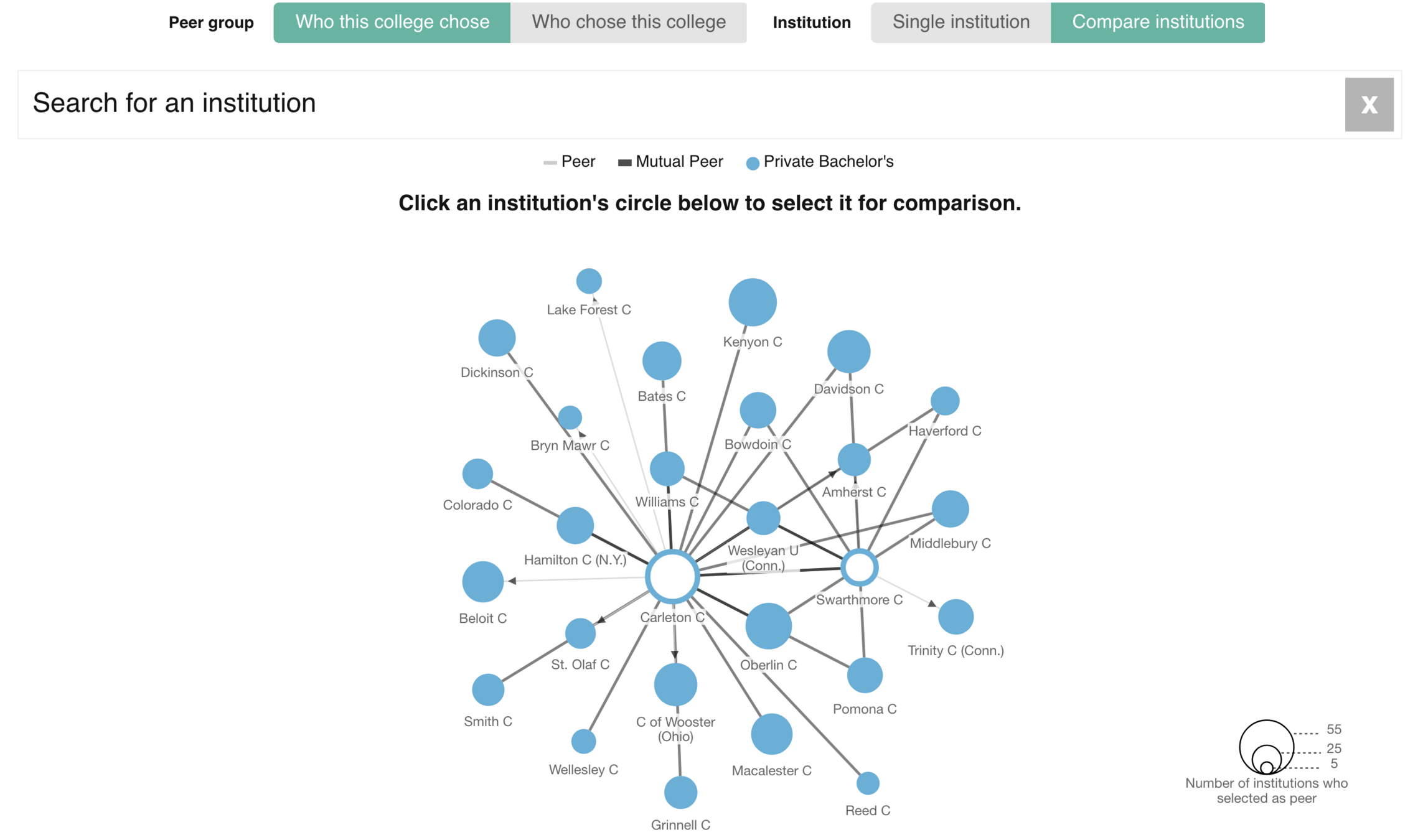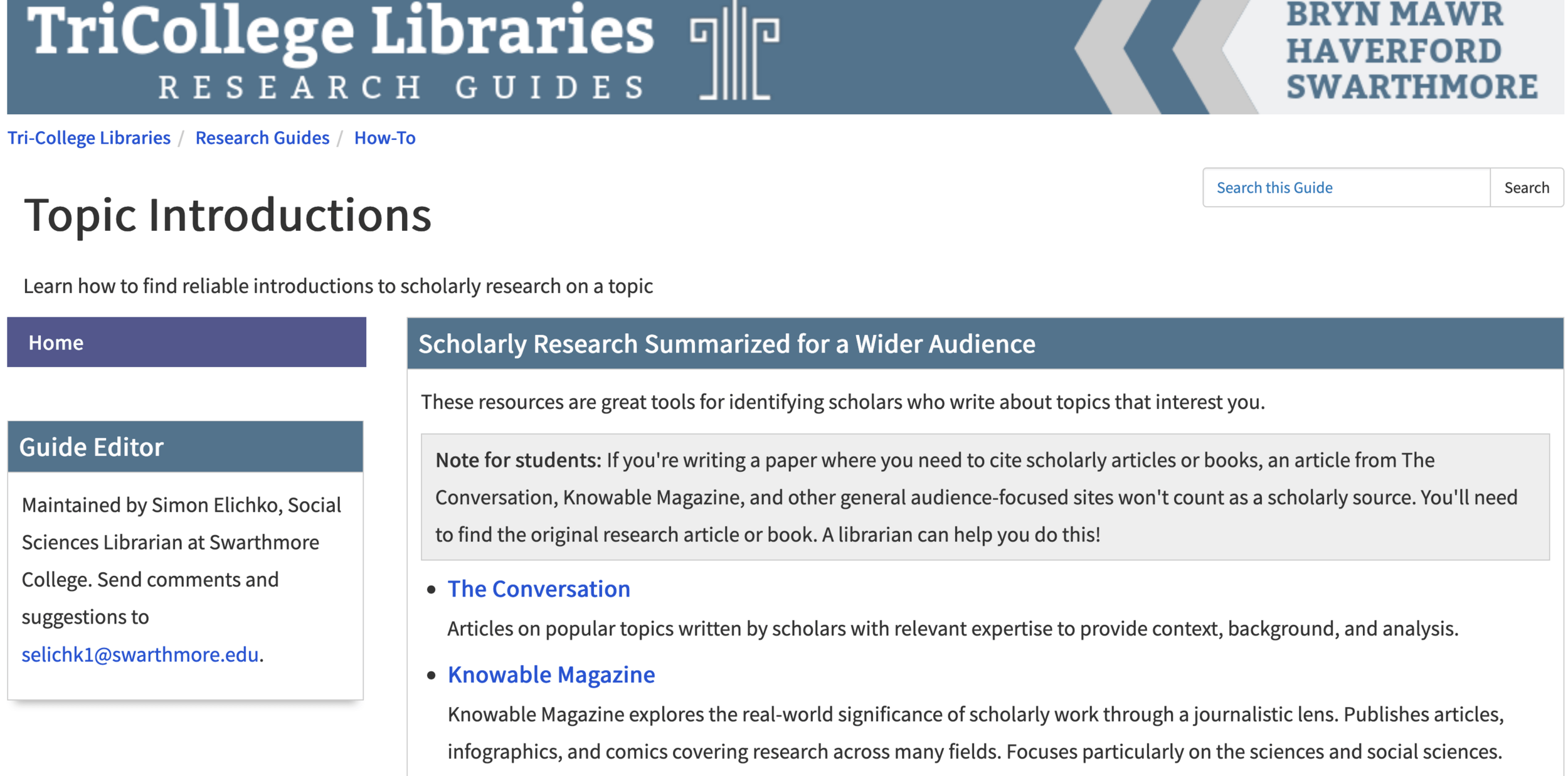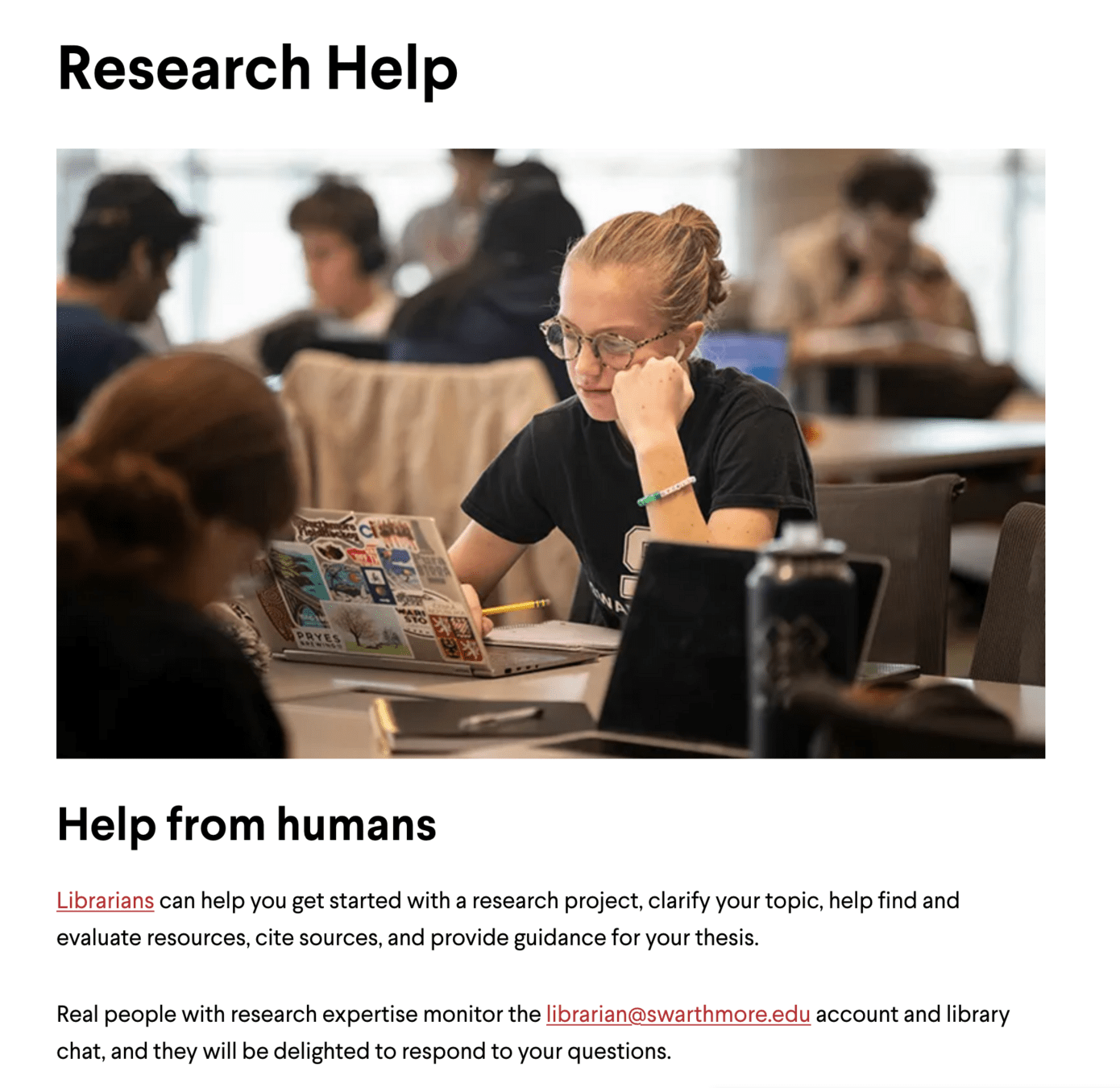Practical Research
for Swarthmore Innovation Fellows
Simon Elichko (they/he)
Social Sciences & Data Librarian
selichk1@swarthmore.edu
All the resources we discussed:
-
Institutional peers, IPEDS data visualized by Chronicle of Higher Education
- Set up your Swarthmore access to Chronicle of Higher Ed
- Access available: Financial Times, Wall Street Journal, The Economist
-
Mills, Anna and Angell, Nate, Are We Tripping? The Mirage of AI Hallucinations (February 06, 2025). Social Science Research Network.
-
Research guide: Topic Overviews
-
Swarthmore College Archives (includes archived college websites and student publications like the Phoenix, Halcyon yearbook, etc.)
-
Web archives: Wayback Machine (Internet Archive)
-
FindPolicy Consulting & Advisory Firms search engine
-
Research guide: Educational Studies resources
- Research guide: Environmental Studies resources
- Tripod Library Search • search for marketing books (2022-25)
Mirage image credit: Brahan Milla
What we'll go over:
- Practical research in higher education
- Reality-checking research: skills and resources
- Lots of specific tools and tips you can use
Practical research
in higher education
Carnegie Classifications & Peer Institutions
Making more persuasive arguments by understanding institutional context
Swarthmore access to
Chronicle of Higher Education
and other news resources
-
Set up your Swarthmore access to Chronicle of Higher Education
- Another good resource for news in the sector:
Inside Higher Ed (create a free account)
- Access available: Financial Times, Wall Street Journal, The Economist, The Atlantic
Considering AI accuracy for finding info about programs at other colleges & universities
We need a new way to talk about AI outputs when they don't match our expectations for realism or facticity....
Just as a desert mirage is an artifact of physical conditions, an AI mirage is an artifact of how systems process training data and prompts. In both cases, a human can mistake a mirage for reality or see it for what it really is.

How can you reality-check outputs from generative AI tools?
(+ do better research in general)
- Proactively identify relevant expertise and reliable sources
- Build your search engine literacy
- Seek out resources that are tailored to your research area in addition to general tools
Proactively identify relevant expertise and reliable sources
- Who is in a position to know about your topic?
- Are they part of a larger knowledge community you might want to draw on?
- Some examples include academic disciplines, companies, industries, professions and professional organizations, non-profit organizations, other groups
- What kinds of perspectives do you want to take into account?
- What are the interests of each? Blind spots?
- Do you need to understand the past as well as the present?
Identifying experts & expertise:
Topic Overviews Research Guide
Helpful resources include The Conversation
and The Journalist's Resource
Understanding the (recent) past
Web Archives
Using archived versions of websites can let you:
- View an archived version of a page that's no longer available online: https://web.archive.org/web/20120318201527/http://weblog.greenpeace.org/makingwaves/archives/2008/10/coal_gets_the_boot_in_the_gree.html
-
See older versions of pages as they changed over time: https://web.archive.org/web/20030423055259/http://nj.gov/
This can be particularly helpful when you need to understand how an issue, program, policy, etc. developed over time.
Learning about earlier efforts and discussions on-campus:
Swarthmore College Archives
Resources from the College Archives:
- Get Started with College Archives Research
-
Archived TriCo College Websites
- Tip: Use tab "Search Page Text"
- Tip: Use tab "Search Page Text"
- Contact College Archivist David Obermayer with questions about researching college history (archives@swarthmore.edu)
Build your search engine literacy
- Try comparing the output of different search engines for the same search
-
Examples include Google, DuckDuckGo, and others
-
Examples include Google, DuckDuckGo, and others
- Related to choosing your expert(ise) first, consider searching specific websites or domains:
- Add site:.edu to Google search to limit results to US higher education -- example search (site:.ac.uk for UK higher ed)
- FindPolicy's Consulting & Advisory Firms search limits results to 12 major firms (e.g. Deloitte, McKinsey, etc.)
- Consider using search engines as alternative algorithms for finding relevant content on social media
How to search social media through Google
Basic set-up
your keyword site:swarthmore.edu
How to search multiple platforms at once:
railroad strike site:instagram.com | site:tiktok.com | site:pinterest.com
-
Put the URL immediately after site: (don’t leave spaces)
-
Leave spaces around the pipe | separating multiple sites.
Check for resources tailored to your research area
Swarthmore College → higher education →
Educational Studies resources → ERIC Database
ERIC Database: Use the Education Level feature to find articles focused on higher education. Helps you avoid research on K-12 education or other industries.
Sustainability-related projects →
Environmental Studies resources
Find ebooks from the libraries in Tripod, for example: marketing, published 2022-25
Reach out!
Working with a librarian is a great way to get help and also improve your skills.
- Meet with Simon or email selichk1
- All of the subject librarians
Practical research for SwIF
By selichk1
Practical research for SwIF
Swarthmore Innovation Fellows
- 124







